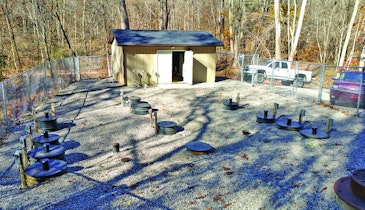To the editor:
I truly accept the author of a recent letter to the editor in Onsite Installer writes what is true for him (“Regional Codes Have Merit,” October 2009). And indeed, I find much merit in the tack he takes, suggesting the viability of “regional septic codes.”
And, within selected parameters, I would make the argument for national standards in selected areas, such as a mandate for installation of watertight containment vessels into which any form of sewage flows.
Additionally, I would support a national mandate that all septic tanks as well as all containment vessels into which any form of sewage flows irrespective of type (fiberglass, concrete, polyethylene) must be field water-tested and verified by a third party. Spare me the argument about the cost of hauling water for such tests, as I would ask simply which is more important: this meager fee versus assuring the viability of these vessels in terms of protecting sources of water?
On the other hand, my own state of Arizona has both of these stipulations incorporated into our state statute. But, guess what: For the most part, more than 90 percent of all new septic installations in Arizona do not ever bother conforming with these statutes. Why? Simply because neither the Arizona Department of Environmental Quality nor the 15 county environmental health departments to whom they delegated this responsibility take the trouble to enforce them.
The point being: regional septic codes, unless coupled with honest implementation and rigorous enforcement, are nothing more than feel-good.
The author referred to other codes, such as the Uniform Plumbing Code (UPC) and Uniform Building Code (UBC). To the best of my knowledge, all have provisions in them allowing for the municipalities that adopt them to modify them to meet local conditions. There are, to the best of my knowledge, certain minimums that are unalterable, though I do not profess to be an expert.
Consumers today are looking for designers, contractors, O&M providers, septic pumpers, and other practitioners who will, to the very best of their ability, provide them with service in a professional manner and who are accountable and responsible for the work they perform.
Feel-good codes, whether local or regional, do not guarantee consumers that we (the onsite industry) will be accountable and responsible for the work we perform. As an industry, we either choose an ethical path or we choose a path to pad our bank account and to hell with the one environment we all share.
Paul F. Miller
Phoenix, Ariz.





